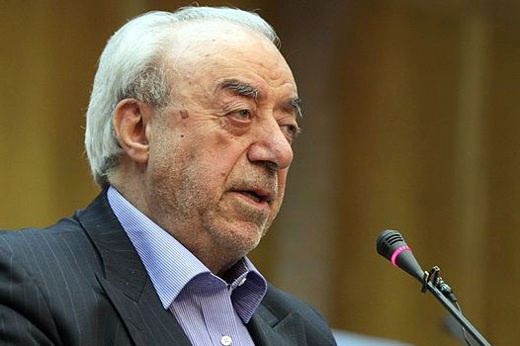In an opinion piece in Arman-e Emrooz daily on Saturday, November 29, Asadollah Asgar-Oladi, a business magnate who heads the Iran-China Joint Chamber of Commerce, said the Iranian economy has learned how to skirt sanctions and its future should not be tied to the success of nuclear negotiators to strike a deal with P5+1. The following is the translation of the piece:
The Iranian economy has known the complex labyrinth of sanctions for years. Of course, one cannot deny that the past few years have seen an uptick in the intensity of sanctions. What should not be forgotten, though, is that despite all restrictions, Iran has managed to bypass the sanctions and keep its economy on track. In other words, conclusion of a deal [in nuclear talks] or failure to do so won’t have much of an impact, either positive or negative.
There are two points worth mentioning, though. Conclusion of a nuclear deal can help the country’s economy by having the banking and oil sanctions lifted. In light of the fact that the US has said in case of a deal, sanctions would be lifted gradually, clinching a deal or failure to arrive at one won’t introduce immediate change. That is why the Iranian government has not pinned much hope on the talks, rather it is trying to manage the sanctions and turn them into an opportunity.
In other words, in exerting pressure on Iran sanctions are not as powerful a tool as they used to be, because Iran has developed the know-how to bypass or manage them. Besides, many countries are no longer as eager as in the past to keep the sanctions regime in place.
Some economists are talking about the economic jolt of the sanctions which seems unlikely, whether or not a deal is struck. The only thing that is of the essence is the kind of management which is employed to handle these sanctions. Employment of a resistance-based economy can help us secure that goal. The country gets some $150 billion in revenues per year. In the worst-case scenario, that figure would remain unchanged. So the economy won’t suffer a jolt as a result of a potential failure to sign a deal.
That Iran should do all its planning based on the likely conclusion of a deal is too simplistic. Of course, if the talks lead to the termination of oil and banking sanctions, the stage will be set. But if talks fail to produce a breakthrough, it won’t present a big challenge to the economy.
